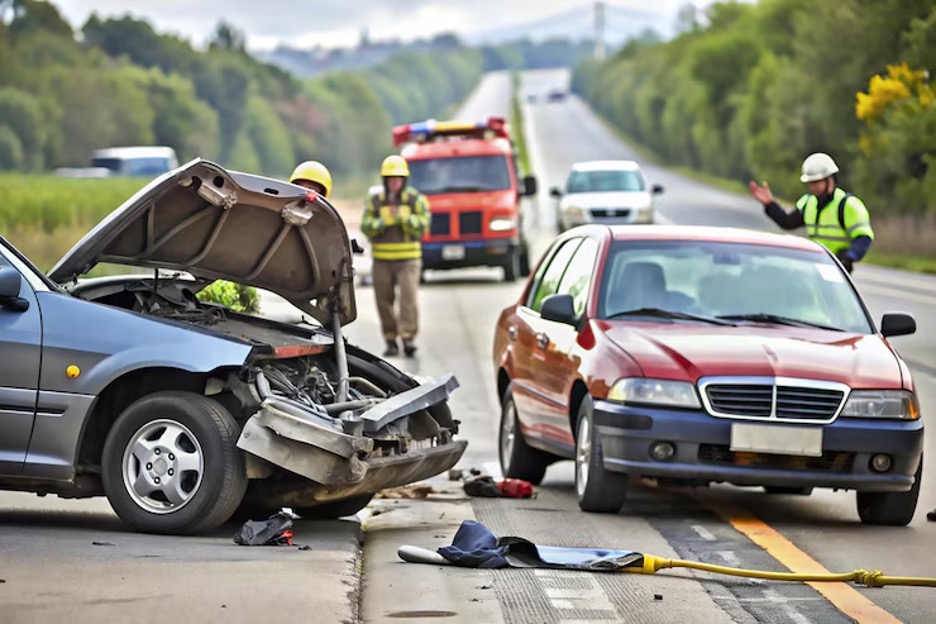Now Reading: The Most Common Mistakes People Make After a Road Accident
-
01
The Most Common Mistakes People Make After a Road Accident

The Most Common Mistakes People Make After a Road Accident
No one ever expects to be involved in a road accident, but when it happens, the aftermath can be just as overwhelming as the collision itself. Your heart is racing, your mind is spinning, and it’s easy to make snap decisions that can end up hurting you in the long run. Knowing what mistakes to avoid can help you stay calm, protect your rights, and make the road to recovery a little smoother.
Whether you’re dealing with a simple fender-bender or something more serious involving trucks or larger vehicles, it’s important to stay informed. If you’re not sure where to start, you can always learn about truck accident lawyers who specialize in guiding people through complicated accident claims and insurance battles.
Leaving the Scene Too Quickly
Even if you think the accident is minor, leaving the scene before the proper steps are taken can cause serious legal problems. Always:
- Stay at the scene
- Check for injuries
- Call the police
- Wait until law enforcement says it’s okay to leave
If you skip any of these steps, you could be accused of fleeing the scene — even if that wasn’t your intention.
Not Calling the Police
Some people think they should only call the police if there are major injuries or a lot of damage. That’s a myth. Having a police report:
- Creates an official record of what happened
- Helps establish fault
- Provides important details for insurance claims
Without a report, it becomes your word against the other driver’s — and that can make getting compensated a lot harder.
Admitting Fault at the Scene
It’s human nature to say things like “I’m sorry” after an accident, even if it wasn’t your fault. But be careful — anything you say can be used against you later.
Instead, stick to:
- Checking if everyone is okay
- Calling for help
- Giving factual information when asked
Leave it to the police and insurance companies to figure out who was responsible.
Not Gathering Evidence
The scene of the accident holds critical information, and it might not be there later. Before you leave, try to:
- Take photos of all vehicles involved
- Capture skid marks, street signs, weather conditions, and nearby landmarks
- Get names and phone numbers of any witnesses
- Write down everything you remember as soon as you can
These small steps can make a big difference if there are disputes later about what happened.
Refusing Medical Attention
Even if you feel fine right after the accident, it’s still smart to get checked out. Some injuries, like whiplash, internal bleeding, or concussions, don’t show symptoms immediately.
Getting medical care helps:
- Catch hidden injuries early
- Create a record that links your injuries to the accident
- Protect you if symptoms get worse later
Plus, it shows that you took the situation seriously — which is important if you need to make a claim.
Dealing with Insurance Companies Alone
Insurance companies are good at sounding friendly, but their job is to settle claims as cheaply as possible. That’s why you need to be careful when talking to them.
A few tips:
- Stick to the facts
- Don’t give recorded statements without advice
- Don’t accept the first settlement offer without thinking it through
If things start getting complicated — especially with serious injuries or multiple vehicles involved — consider getting professional legal advice to protect yourself.
Settling Too Quickly
After an accident, you may feel pressure to move on and put the whole thing behind you. Insurance companies know this and sometimes offer quick settlements that seem attractive — until the bills and injuries pile up later.
Before accepting any offer, think about:
- Future medical costs
- Lost wages
- Long-term physical therapy
- Pain and suffering
Once you settle, you usually can’t ask for more money later. It’s better to take your time and make sure everything is truly covered.
Protect Yourself by Avoiding These Pitfalls
The moments after an accident are stressful, but they’re also incredibly important. By avoiding these common mistakes, you give yourself the best chance to heal, protect your rights, and recover the compensation you may deserve.
Accidents are chaotic, but a little knowledge can go a long way toward making the aftermath a little less overwhelming — and helping you get back on your feet the right way.









